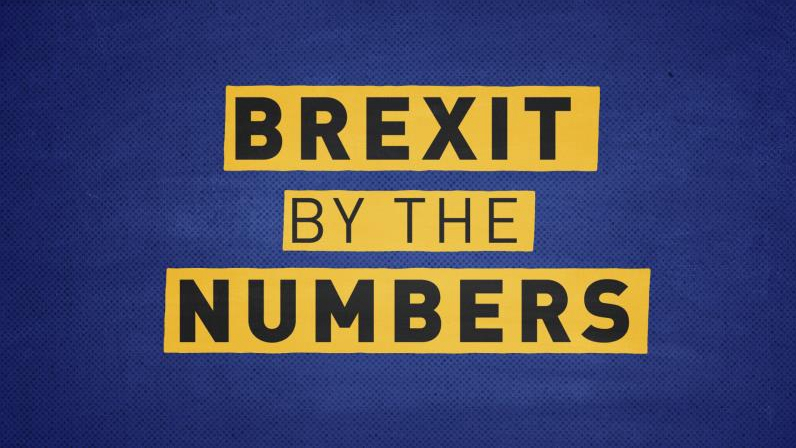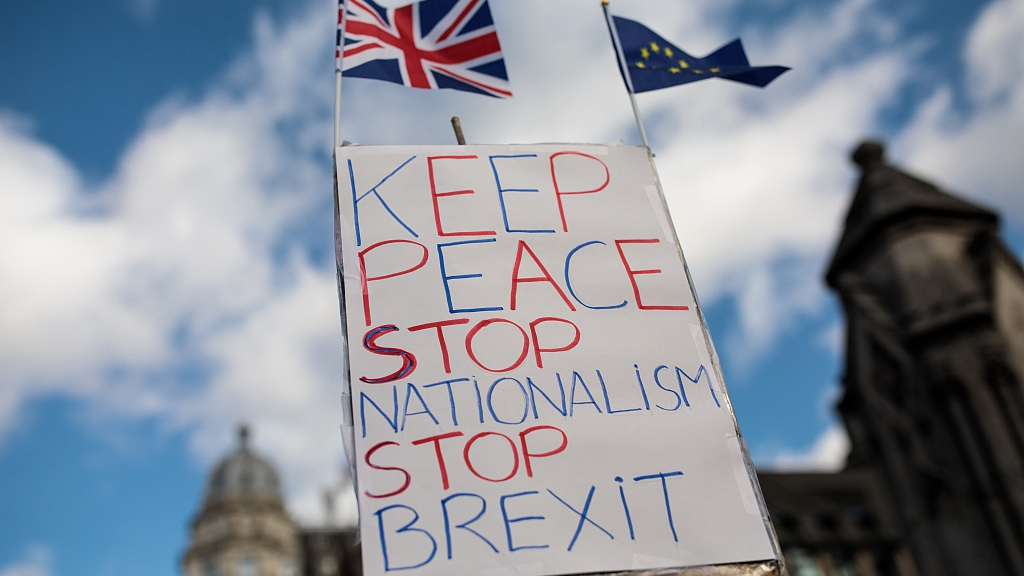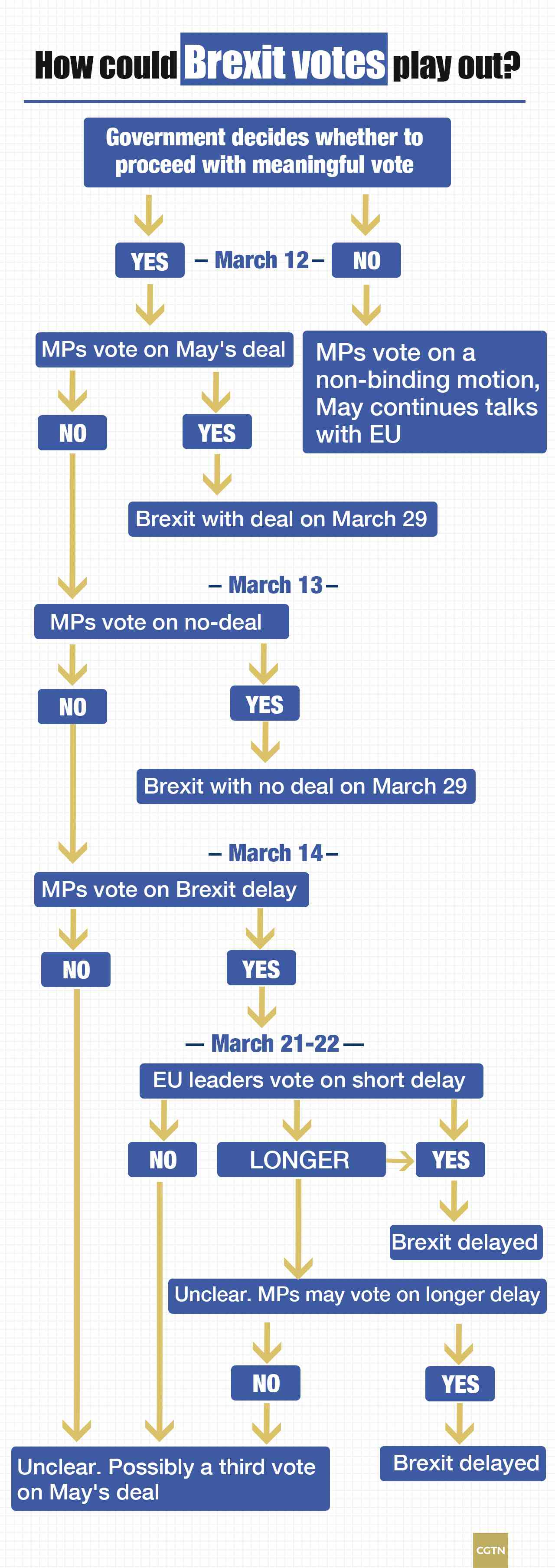
Europe
17:58, 12-Mar-2019
Brexit: Figures talk
Updated
19:42, 13-Mar-2019
By Danny Harries, Carmela Joannou
01:07

The Brexit vote, which saw approximately 17.4 million British people participate on June 23, 2016, triggered what has become a chaotic separation process.
Protracted negotiations with the European Union culminated in British Prime Minister Theresa May putting a Brexit deal to the vote in the House of Commons on January 15, only to be defeated by 432 votes to 202 – the worst for any government in modern parliamentary history.
Read more:
After surviving a no-confidence vote on January 16, May returned to Brussels seeking additional concessions, especially over the "Irish backstop" – the part of the deal intended to prevent the return of visible checks at the border between Northern Ireland and the Republic of Ireland after the UK leaves the EU.

An anti-Brexit protester demonstrates outside the House of Parliament in London, Britain, March 11, 2019. /VCG Photo
An anti-Brexit protester demonstrates outside the House of Parliament in London, Britain, March 11, 2019. /VCG Photo
Although May has made "legally binding changes" with the EU, MPs still need to back a deal if it is to set the terms of Brexit on the current deadline of March 29. The other options for MPs are votes that might lead to the UK leaving the EU without a deal or extending Article 50 of the Lisbon Treaty and delaying the Brexit process.
The EU has said it remains “committed” to agreeing a deal that facilitates the Brexit from the bloc on March 29.

Uncertainty over the separation process has cast a shadow over business sentiment within the nation and trade agreements with the EU. While the complexity of signing multiple trade deals with the rest of the world has proved a stumbling block for May's government.
The Bank of England has warned that in the event of a no-deal Brexit, the UK economy could shrink by eight percent in the immediate aftermath and trigger a recession worse than the global financial crisis of 2008.
The central bank added that house prices could fall by almost a third and the pound by a quarter in the absence of a transition period.
8151km

SITEMAP
Copyright © 2018 CGTN. Beijing ICP prepared NO.16065310-3
Copyright © 2018 CGTN. Beijing ICP prepared NO.16065310-3